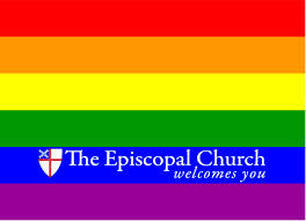 the Rev. Carol Tookey
the Rev. Carol Tookey The Rev. Carol Tookey
My Franciscan community has been doing some discernment around the theme “Rebuild my Church.” If you know Francis’s story, you know that “rebuild my church” is what Francis heard from the crucifix as he prayed at the little church of San Damiano after his conversion. As part of this process, our own fellowship group in Albuquerque has been looking at the life-cycles of communities.
| In the gospel we have this very weird story about demons, accusations of Jesus being in league with Beelzebul, accusations of madness, talk of blasphemy and ideas about family. There’s a lot of stuff packed in this short passage, more than we can sort out today. But I think here, too, we have a problem of discernment. The scribes accuse Jesus of being in league with Beelzebul – the ruler of the demons. And this accusation prompts Jesus to make probably his worst condemnation in all of the Gospels – the withholding of forgiveness – forgiveness which seems to be a central feature of the Kingdom of God that Jesus came to proclaim. As I read this, I wondered if these accusers had a vested interest in the evil spirits that were holding the people. Was there some kind of money or power involved? Were they getting something out of it? | I wondered if these accusers had a vested interest in the evil spirits that were holding the people. Was there some kind of money or power involved? Were they getting something out of it? |
I don’t know if the scribes had some kind of interest in keeping people enslaved to the demons that Jesus was casting out. But what is clear is that Jesus’ accusation against them is that they discern wrongly – they are calling what is good, evil. By saying that Jesus has an unclean spirit, they are blaspheming against the Holy Spirit. And somehow, if people are that deeply confused about good and evil, they will find forgiveness hard or impossible to receive.
...if people are that deeply confused about good and evil, they will find forgiveness hard or impossible to receive.
| In Ched Myers’s commentary on the Gospel of Mark, called Binding the Strong Man after this very passage, his whole premise is that what Jesus is attempting to do is a nonviolent action against the forces in society that confuse good and evil, what traditionally have been known as virtues and vices. Myers talks about Roman and imperialism and temple establishment. And that brings us back to those organizations that came about from the decisions of the Hebrew people, and the transformation of a Spirit-led desert people into a religious hierarchy and a nation-state. |
What if we could free people from addiction, not only to intoxicating spirits, but to over-consumption? What if we could free people from having to do work that was demeaning, poorly paid and unsafe? What if we could free people from the power of soul-destroying institutions like government bureaucracies?
What if we could free people from addiction, not only to intoxicating spirits, but to over-consumption? What if we could free people from having to do work that was demeaning, poorly paid and unsafe? What if we could free people from the power of soul-destroying institutions like government bureaucracies?
Discernment is the key in being able to see these structures – or in Biblical terms – these principalities and powers – for what they truly are. But discernment isn’t easy. It can be tricky. A business like tobacco is a good example (and less controversial than some others I could name). We know now that smoking is dangerous and costly. But, as poet and philosopher Wendell Berry admits, it was a life-saving economy for small communities in the southeast where other forms of agriculture just didn’t work, and there weren’t many options for making a living. When the people of Israel went to confront Samuel, they saw an old man who couldn’t hold things together much longer, and no future in his sons who had been corrupted by power and position. So they made a choice they thought would be better – a king, like the nations around them.
| We all have to make similar choices. Sometimes, like those people, there just isn’t an easy, black and white answer. So probably the most important lesson to be gleaned is the importance of the process of discernment. I think that’s made even more difficult in a culture where there are so many choices out there, and so many vested interests, and a media that’s probably determined to confuse virtue and vice in the pursuit of an economic goal. As people of faith, it seems we are obligated to be thoughtful and prayerful in the choices we make. I tell people that I admire the Amish because of the way they make decisions. They are known for their rejection of a lot of modern technology – like internal combustion engines, for example. But they don’t reject all modern conveniences. What they do is, as a community, prayerfully consider what the impact of a technology will be on their community before they reject or embrace it. What a thought! |
discernment.

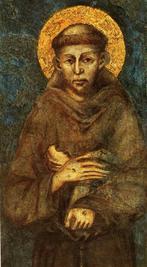

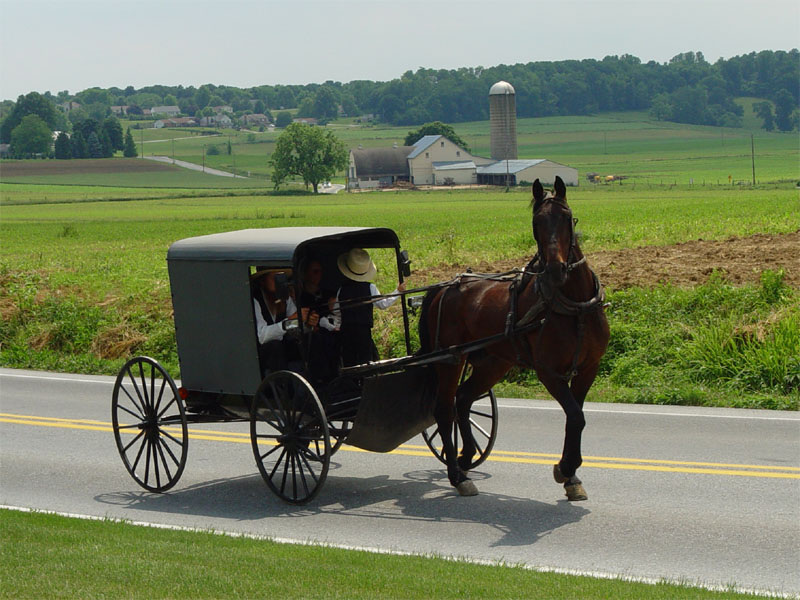
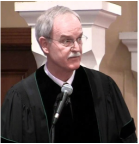
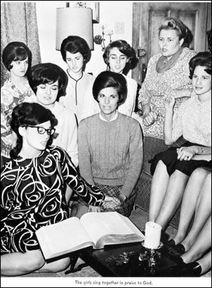
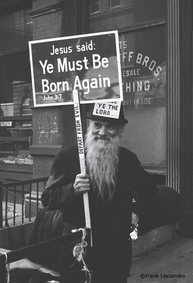

 RSS Feed
RSS Feed
